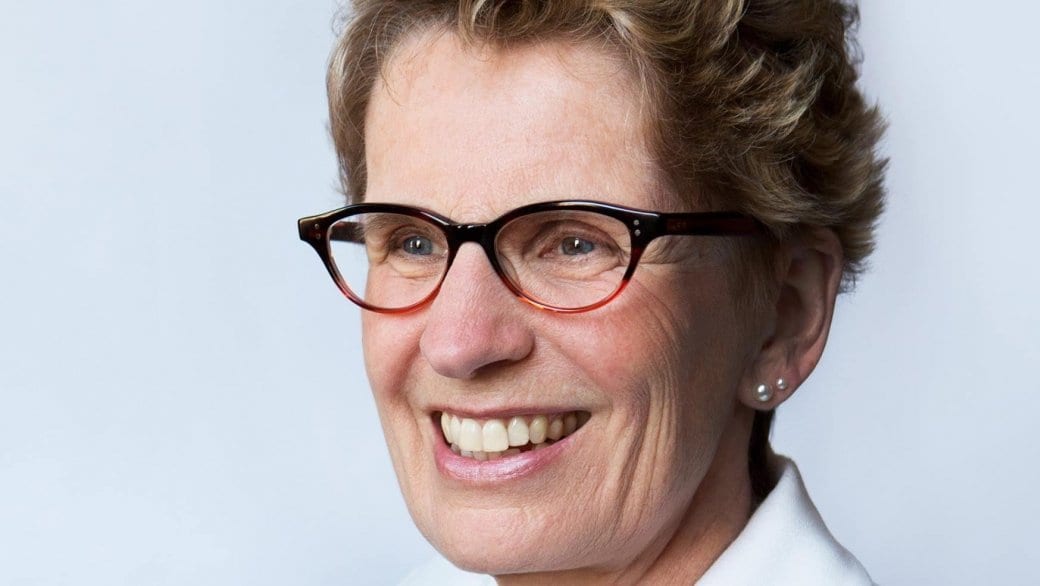Ontario Premier Kathleen Wynne addressed an audience of 450 on International Women’s Day, where she touched briefly on the gender wage gap and being gay in the world of politics, among other topics. The event took place at the Appel Salon in the Toronto Reference Library and included a live interview with Toronto Star managing editor Jane Davenport.
When Wynne first contemplated running for the Ontario Liberal leadership, she says many in her own party said they liked her but didn’t think she could win an election because of her sexuality. “It came down to, ‘Because you’re a lesbian.’ People would dance around it because people don’t like that word. They would say, ‘You’re too urban,’” she says.
Wynne disagreed. “I believe that the people of Ontario will be fair, and they’ll make their judgments based on our policies, based on our enthusiasm . . . and we were right,” she says.
She also told the audience that she’s expecting recommendations from the Ontario government’s Gender Wage Gap Strategy Steering Committee any day now.
The Equal Pay Coalition, an Ontario group that lobbies for equal pay for men and women, says women in Ontario make 31.5 percent less than men. In 2013, the National Committee on Pay Equity, an American group, found women of colour experience an even greater wage gap, with black women and Hispanic women making 64 percent and 54 percent less than white men, respectively. Also, the BE Journal of Economic Analysis and Policy reported in 2006 that male-to-female transgender employees made nearly a third less after transitioning than they did before.
When Daily Xtra asked Wynne about compound employment discrimination faced by women of intersecting identities, Wynne said her government is looking “at the whole issue . . . We have to look across at different groups of women because when you layer those realities, you’re right, it gets worse.”
“We make assumptions because it’s 2016 that somehow we’re past it,” she says. “Somehow we all know about being inclusive. We haven’t internalized sexism or we haven’t internalized homophobia or racism . . . and that’s just not true. We have internalized all of those things and we have to deal with them in ourselves and in our organizations.”

 Why you can trust Xtra
Why you can trust Xtra


